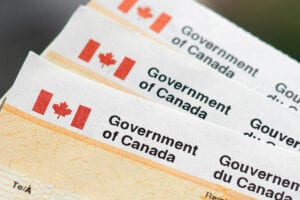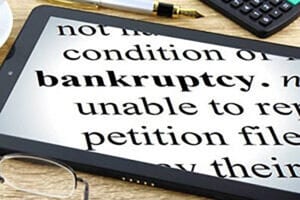During COVID, lockdowns led to many not being able to work.
To help those out of a job because of COVID, the government implemented the Canada Emergency Response Benefit (CERB). Within just seven months, CERB paid out $81.6 billion in benefits to almost 9 million people.
Many received this aid without being fully aware of the eligibility requirements and whether they met them. The speed at which the program rolled out meant systems and resources weren’t in place to verify eligibility in real-time. As a result, many that weren’t eligible received the benefits. These recipients recently received letters from the Canada Revenue Agency (CRA) that they must pay back the benefits.
Greg Bates is one of the recipients forced to repay, “I was completely shocked. I had gotten an assessment back in 2020 that they knew they gave me the $2,000. They’re going to go a couple of weeks without sending me any money to make up for that difference. So there’s the confusion there.”
Bates, like many others, received the benefits as much as two years ago. This led them to believe there were no issues.”Then this shows up,” Bates said, ”and there’s less confusion more than anger. I’m confused by the messaging – I don’t understand what this debt is all about.”
Bates isn’t alone. Many Canadians have a similar story due to a lack of eligibility knowledge for the benefit.
Owing money to any lender can lead to issues. Owing money to the CRA is a whole other level. They have more rights than other lenders. The CRA can garnish your paycheck and bank account or charge interest and penalty. Tactics they will use if necessary.
CERB repayment has left many Canadians in a rough spot.
Why are Canadians being forced to pay back now?
Early in the pandemic, the government wanted to get money to Canadians quickly. This meant the program rolled out before being fully idealized.
The three main reasons people received CERB payments while not technically eligible were:
- Didn’t meet the income eligibility criteria.
- Received CERB overpayment from the CRA and Service Canada.
- You earned more than anticipated when first applying.
The CRA released a statement about the recent collection letters. It stated, “The Government of Canada selected an attestation-based approach. This means that individuals self-declare the information they provide when they apply for the benefits.” This approach allowed participants to receive the benefit without any oversight. Until now.
The CRA is now going through the benefit payments to ensure only those eligible received CERB. The statement made by the CRA went on to say: “The CRA may verify this information at the time of filing and/or at a later date.” The letters received by people like Bates, are a result of CRA’s eligibility verification process.
Consequences of avoiding CERB repayment
The more severe actions the CRA can take if you don’t repay your COVID-19 benefit debt are:
- Allocating your future tax benefits like tax refunds and credits towards your debt.
- Garnishee your wages or freezing your bank accounts.
- Register a lien against your assets and seize them for resale.
To avoid these scenarios, reach out to the CRA. They will work with you to create a repayment plan you can manage. The CRA can be very reasonable if you work with them. Just keep an open line of communication.
Those unable to repay the CERB payments are also looking into bankruptcy as an option. If this is the route you are looking to take, it is best to understand the associated implications. One of the biggest implications to consider is that the rules around whether CERB debt is dischargeable by way of bankruptcy are unclear.
Can you discharge CERB in bankruptcy?
Declaring bankruptcy to clear your CERB debt should be a last resort. There are other options to look at first such as:
- Creating a payment plan with the CRA.
- Debt consolidation to put all your household debts together.
- Debt Management Plan to lower your monthly debt payments.
The Office of the Superintendent of Bankruptcy (OSB) and the government recently shared some guidelines for bankruptcy related to CERB. They stated that any CERB payments could be discharged if related to overpayments or income ineligibility.
If overpayments or ineligibility lead to you being unable to manage their CERB repayment requirements can be included in a bankruptcy filing. However, CERB repayment discharge is being assessed on a case-by-case basis by the courts, so is not guaranteed.
Debt to the CRA can be a trying and challenging time. Making it understandable why those in debted to the CRA want to get out of the situation as quickly as possible. While getting out swiftly is a good idea, bankruptcy isn’t (nor should it be) a quick and easy financial fix. There are far-reaching implications. That’s why you should go over all the other options available with an expert before moving ahead.
For those struggling with CERB repayment and wanting to understand their options, Consolidated Credit can help. Our team of Credit Counsellors can help navigate this challenging time.




